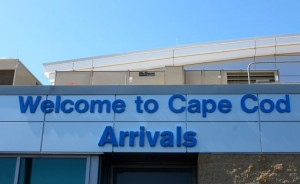
HYANNIS – Boston aerosol transmission expert and former Harvard University professor Dr. David Edwards said that there are a variety of ways for individuals to better keep themselves safe while traveling amid the COVID-19 pandemic.
Dr. Edwards said that COVID-19 is able to be transmitted through both large and small droplets from the respiratory system, some so small that they can transmit through some face coverings and travel great distances.
According to Edwards, 6 feet of social distancing and masks are important for thwarting the large droplet transmissions, but the smaller droplets are of a particular concern in indoor environments where they can accumulate, including buses and airplanes.
“Distance in general, for both kinds of transmission, is a really effective means for reducing our likelihood of being infected as well as time. The shorter our duration in the presence of an infected individual and the greater the distance, the less likely it is we’re going to be infected,” said Edwards.
Edwards said that travelers should keep moving and keep a good distance between themselves and others to minimize the possibility of infection.
He also stressed the importance of face coverings, saying that the N95 and surgical masks provide the most robust protection, though any face covering will minimize infection risk.
Cotton masks are useful to this effect, though Edwards said it is important that they are regularly cleaned, alongside other commonly-touched surfaces and hands.
Being outside with circulating air helps lower the risk of exposure, however Edwards said that ultimately any time spent nearby individuals with COVID-19 carries a risk of infection.
Many transportation services have increased their cleaning protocols and COVID-19 protections to help keep the public safe as states continue to reopen, which Edwards said is very effective.
“The wearing of personal protective gear by staff, the air handling and particularly those airlines that are practicing social distancing, not all airlines are but those that are, are providing an important safety measure for anybody who’s travelling,” said Edwards.
Edwards said that part of travelling safely comes down to getting used to and following the changes in protocols and safety guidelines as they are developed.
“We’re all adjusting to the new COVID-19 reality. My own expectation is that the travel industry will rebound, but it will probably be different. These hygiene methods that are being inaugurated will continue, and I think there will be new ones,” said Edwards.
“There’s a lot of discovery that is happening right now that is going to make an airplane, or bus, or transit system a lot safer in the coming months in my view.”
One such new hygiene method is Edwards’ own FEND, a nasal saline mist which he said reduces airborne particles in exhaled air by 75% for several hours.
The mist makes use of two salts, both found in sea water, that reduce the same exhaled small droplets that masks have difficulty capturing.
Edwards said that the nasal saline mist will be affordable and is planned for use in addition to mask wearing, and is not intended to fully replace masks or other safety methods like social distancing.
Edwards anticipated an increase in hygiene in the future after COVID-19, with the continued implementation of safety tools being developed now to deal with the pandemic.























